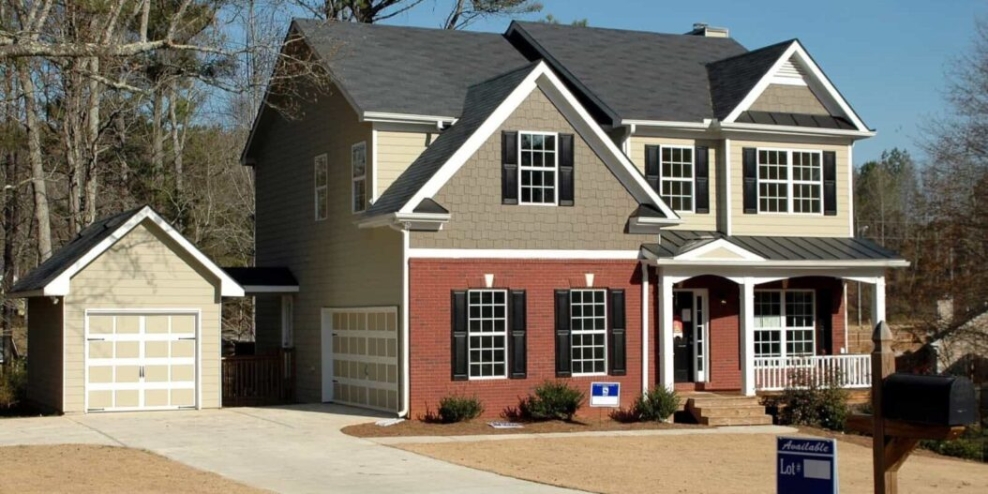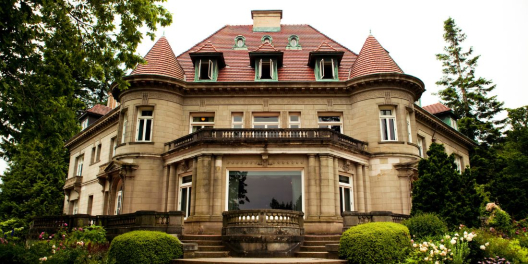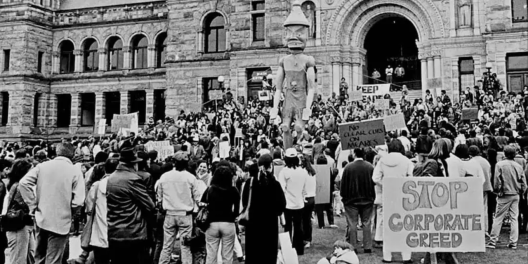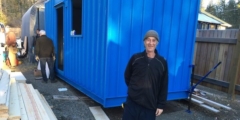A house on Chesterman Beach in Tofino sells for $1 million above the asking price. Another one on Cumberland’s historic Camp Road fetches more than $1 million, netting the seller several hundred thousand above the list price. This has become a common story on Vancouver Island – multiple buyers getting into bidding wars that push prices into unexpected, unheard-of territory.
What does it all mean?
Well, for one, it means some sellers are cashing out and pocketing more from their property investment than they had ever dreamed of making. It also means people from more expensive real estate markets who are willing to pay a lot to flee the city and live on the island are helping price locals out of the market.
But in an article published March 15 in the National Observer, columnist Max Fawcett argues that this real estate boom points to something more troubling; Canadians are obsessed with property investment to an unhealthy degree, and policymakers don’t seem to know what to do about it.
Last May, the Canada Mortgage and Housing Corporation forecasted real estate prices could drop by nearly 20 percent. They couldn’t have been more wrong. Instead, they’ve spiked more than 20 percent in places like Vancouver and Toronto, prompting a real estate bubble spill over to small-town Vancouver Island like never before.
This is good news for homeowners in hot markets, but not so much for first-time buyers trying to finance a property purchase miles higher than the assessed value. As Fawcett points out, housing now makes up almost 10 percent of Canada’s GDP, “which is approximately 50 percent higher than our historical average and twice that of the United States.”
What’s the big deal, you may ask?
Well, for one, Canadians are taking on more debt than ever before.
Why does this matter?
This increases the risk of default – and foreclosure – if interest rates rise in response to anticipated post-COVID inflation.
But there’s another more troubling impact of the real estate boom when you take a broad view of the economy, according to many economists.
In a January Financial Post editorial, Kevin Carmichael wrote that “the world is in the midst of a transformative shift to a digital and carbon-neutral economy, a once-in-a-lifetime investing opportunity, and where are Canadians placing their bets? Houses, for the most part.”
He went on to say about real estate investing that “Thousands of entirely rational decisions could unwittingly erode Canada’s competitiveness.”
So, what can governments do to break this collective fever, Fawcett asks?
Non-resident speculation taxes like the one implemented in British Columbia may help, but are not enough on their own. The feds could tax the massive capital gains being made, a way to “throw a splash of much-needed cold water on an overheated housing market and capture some of the excess gains it has created,” according to Fawcett. We could then channel this additional source of revenue into an affordable housing program for expensive markets. But additional taxes, especially when you’re talking about people’s nest eggs, would be as welcome as rain on your wedding day. Raising the stress test for mortgages, requiring buyers to put more down and spend less of their monthly income on the mortgage – will help but might also unfairly target first-time home buyers.
Money remains cheap. Realtors, builders, renovators and anyone else who benefits from a real estate boom like it that way. Besides maple syrup, hockey and poutine, obsession over real estate investment are uniquely “Canadian,” and that isn’t the mark of an innovative, productive economy.
The lack of housing affordability could very well be the main issue all politicians need to address for their survival in the coming years. Either that, or we will live in less equitable, less accessible, and less socially diverse communities. In the meantime, while we obsess over real estate, other countries could leave us behind in competitiveness and productivity.









